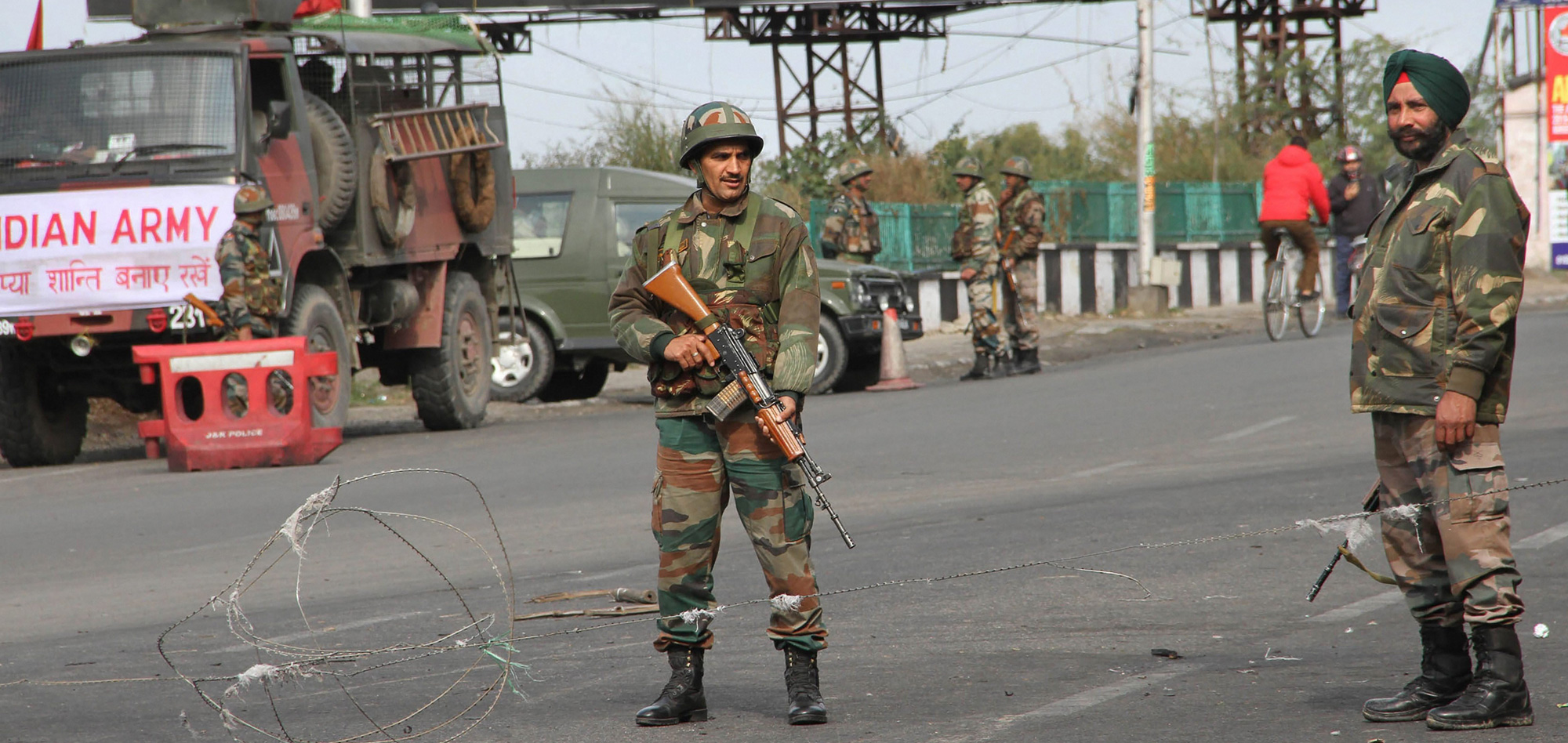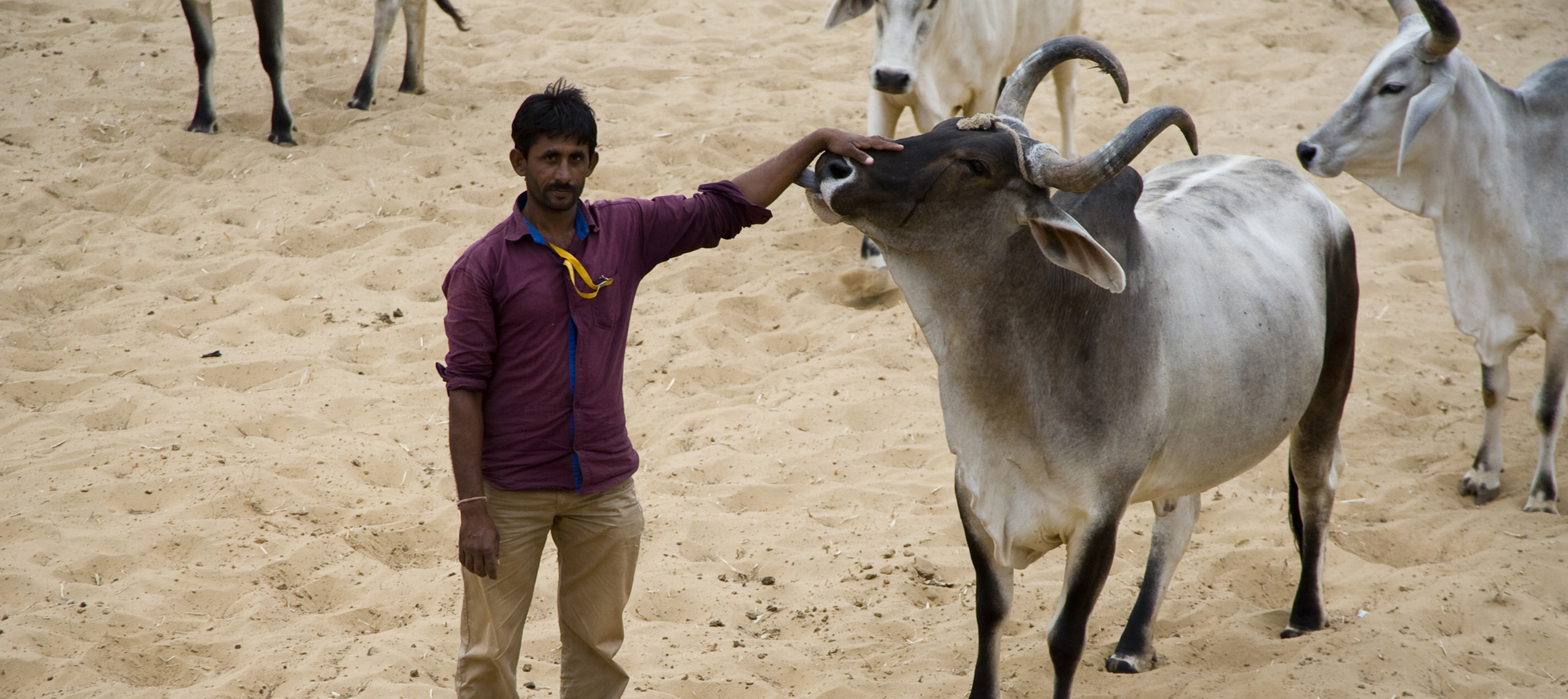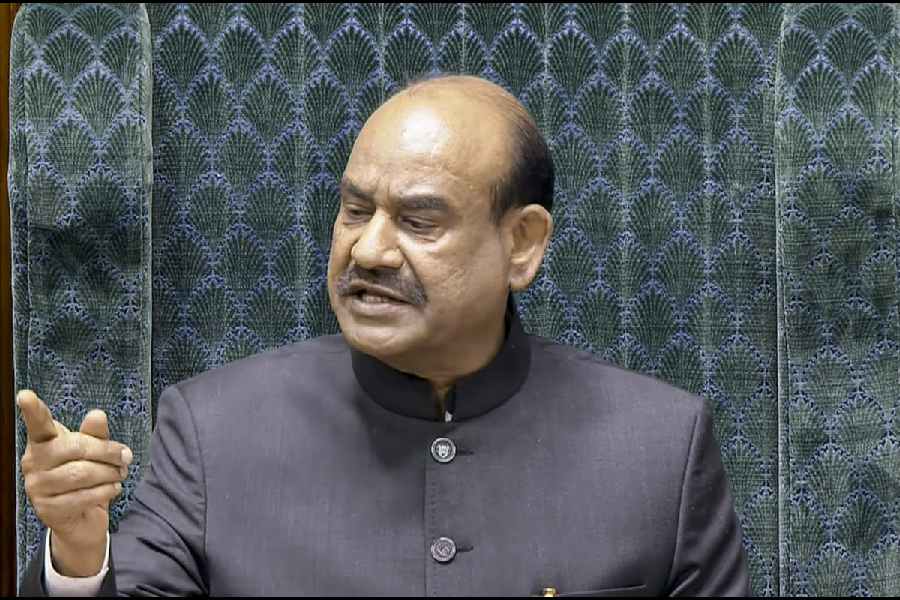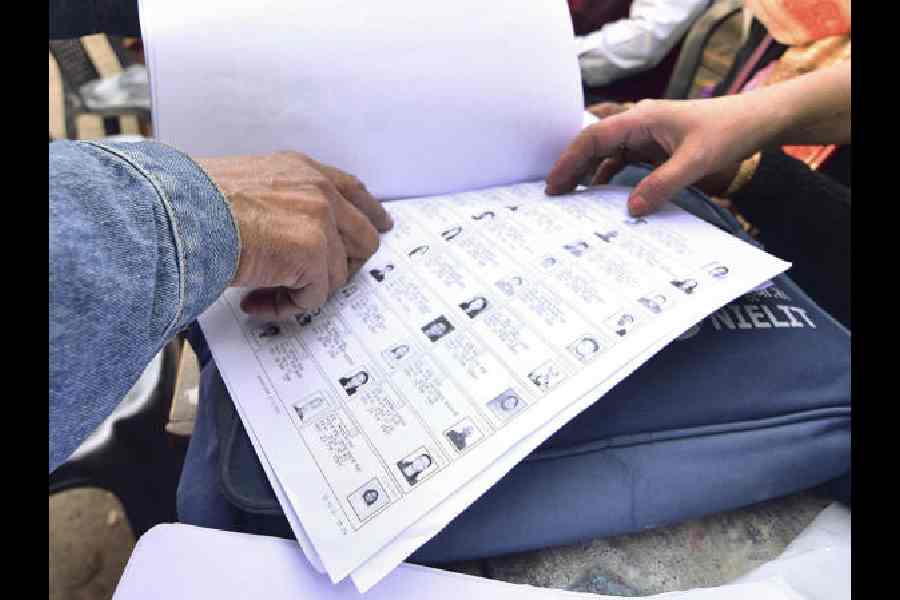Thankfully, I happen to share with my would-be detractors an avid interest in Indian history, which helps me dispel these self-effacing albeit historically inaccurate arguments. If we go by historical fact and not WhatsApp scholarship, I would be remiss not to point out that Indian history is littered with incidents of Hindu violence against minorities. I shall quote only a few representative examples here because I do not want to test your patience or encroach upon your social media time. When I say “representative”, I mean exactly that – my would-be detractors will argue that these examples are proverbial flashes-in-the-pan, and that I am cherry-picking isolated incidents, just as they argue on national television that the string of bovine-lynchings are all somehow isolated and unconnected at the same time.
To that, I say, do your own research – pick up any serious book on ancient Indian history. Since the advent of recorded Indian history, beginning in the sixth century BCE, our historical narrative has been interspersed by the Hindu minority/ majority engaging in violent retribution against other religious sects. In 180 BCE, just as political power was being violently transfered from the Mauryan dynasty to the arriviste Shunga dynasty, perpetrated by the regicide of the last Mauryan ruler by his own military general, Pushpamitra Shunga, there was a spate of wide-spread killing of Buddhist monks and systematic elimination of the Buddhist Sangha at the behest of the new ruler’s political advisors. This religious purge is recorded both in the Hindu Puranas and Buddhist texts. It was a carefully orchestrated ethnic cleansing initiative, intended to assert the supremacy of the Brahminical religion over the then Buddhist majority population in order to establish the political authority of the usurpist Shungas over the Mauryan Buddhists. Which is not to say that the Mauryan Buddhists were not usurpers – Chandragupta Maurya, the first Mauryan dynast, famously usurped the throne of Pataliputra from the ninth and last Nanda ruler, as anyone who has seen the historical enactment in the popular show Chanakya in the early nineties will remember. The reason for my making this digression is to impress upon you that credible historical analysts do not deal in half-truths.
History does not follow a clean-cut linear narrative as my detractors will repeatedly insist. The plain truth is that ancient Indian history even before the twelfth century, when the first Islamic Sultanate was established by the Mameluk Sultans under Qutub-ud-din Aibak, who is immortalised in history by the eponymous Qutub-Minar of Delhi, was characterised by purges and counter-purges by rival religious factions of Brahminical Hindus, reformist Buddhists and Jains who took turns to assert their political and religious supremacy over the North Indian heartland.
Not just that, Muslims weren’t even the first invaders in Brahminical India – if we recall our Indian history textbooks, the Gangetic plains have withstood and assimilated repeated invasions by outsiders – Kushan hordes came hurtling down the Khyber pass from Central Asia in 150 BC, followed in turn by Shaka hordes (Scythians of ancient Greek lore) before it was the turn inevitably of the Hunas in 500s AD, nailing the coffin of the famous golden age of the Guptas.
The only noticeable difference vis-à-vis the Muslim invaders is the subtle point that needs to be spelled out – the Kushans converted to Buddhism, and the Shakas and Hunas to Brahminical Hinduism; only the Muslim Mameluks and the other Muslim dynasties that followed, noteably the Tughlaks in the 1250s CE, the Lodhis in the 1350s CE and the Mughals between around 1500 and 1857 CE made the egregious error of sticking to the book they brought with them from their Egyptian and Central Asian homes.
Hence, according to the cultural propagandists, Muslims are considered invaders whilst the earlier Central Asians are mere continuation points in the great Brahminical project. The larger point of this impromptu historical lesson being that each one of us has to judge for ourselves whether simply the choice of religion qualifies one as invader or not. This is the central point that the other side’s entire argument hinges on. Nor does this historical narrative detract from the fact that India in its modern history has the most unique distinction of conceptualising and executing a non-violent civil disobedience movement, resisting and ultimately forcing the withdrawal of British colonial power, which had been seriously weakened in the wake of the Second World War. That the civil disobedience movement was organised on the Hindu religious principle of Ahimsa and spearheaded by the Mahatma, himself a devout Hindu, does not negate centuries of complicated history, where Hindu rulers have often launched religious purges against other sects.
In fact, the lesson waiting to be drawn from the culmination of the civil disobedience movement is subtle – that Hindu religious principles have been invoked in the cause of both violence and non-violence as the historical political situation has demanded. The Mahatma was an astute political strategist as much as he was a devoted Hindu in public life. In fact, he realised that the Hindu religion itself was not free of social evils – he famously declared that we Indians must deserve freedom before we were handed it. Deserving freedom in the Mahatma’s vision meant ridding our society of the age old evils of caste-based and religious persecution and treating all our fellow citizens with dignity and respect. Hence his battle cry of wiping clean the egregious practice of untouchability, in the tradition of famous social reformers who came before him, namely Raja Ram Mohan Roy and Swami Vivekananda, to name a few of the heroes that the Indian right-wing lionises.
While we swoon over the powerful rhetoric issuing forth from television screens today, let us endeavour to remember that the Mahatma’s vision was not just one of a clean Ganga – more than ever, it was one of a clear national conscience; a vision that was assiduously translated into a political document, the Constitution of India, by B.R. Ambedkar, himself a “low-born” Hindu who in strict Brahmanical tradition would not have even qualified to be educated, let alone author the founding document of independent India.
So what shall it be? Shall we live up to the Mahatma’s ideals, or just use him as the poster boy to clean plastic wrappers off our streets? Please decide wisely at the ballot box, because the soul of this nation depends on it.
However, even the most sanguine observer will concede, that this is an idealised notion in today’s political climate. When one hears the shrill rhetoric from the jingoistic Indian political leadership and their hateful stooges in the national media, one is forced to admit that our religious identity is increasingly being used to define us and then divide us as a logical consequence. (1) The ever-emanating shrill cries branding political dissenters as “anti-nationalists” and then arresting them on trumped-up charges, of demanding that they be expelled to Pakistan, (2) of elected government officials cheerleading the anarchical murder of members of religious/caste-based minorities because of their differing views on the uses for livestock, and (3) the rabid support for the blatantly unconstitutional and utterly distasteful idea of the Indian government leading the programme of constructing a temple on the site where decidedly un-secular religious vandals tore down a mosque that had been standing for centuries in idyllic calm, must make realistic observers once again question what it means to be Indian. Can we definitively claim Salman Rushdie as one of our own? Or do we concede that in today’s climate, religious identity is the defining feature of our nationality and therefore hand over Rushdie to our neighbouring state gift-wrapped in a green-crested crescent?
Now call me a communist lunatic (but I shall request you square that label with my career choice as an investment professional at a private equity fund), but I shall argue the only path that seems rational to me – that the Indian Constitution be the sole guiding document that defines our national identity. Its logical corollary, therefore, is my staunch assertion that the Indian national identity cannot and should not be defined by one’s personal religious affiliation. Because if we do not argue this point, the other road down the fork is to admit that our national identity be determined by our religious beliefs – the logical extension being that as a modern nation, we embrace a state religion and therefore naturally advocate different treatment of those who do not follow the majority religion – that the majority religious faction gets to decide what and how many rights be accorded to religious minorities. One doesn’t have to be a far-sighted strategist to realise that going down this road will take us closer to other religiously fashioned political entities – that we shall henceforth follow in the illuminated footsteps of the illustrious modern nation-states of Saudi Arabia, Pakistan and Iran.
Of course, there are those who will retort that my view is purely academic and absurdly extreme – that in reality, India being a nation predominantly populated by Hindus cannot possibly careen down the same road as Saudi Arabia, Iran and Pakistan. They will wax eloquent relying on the supporting evidence of countless WhatsApp forwards that have been statistically proven to be more numerous than the suspended particles of pollutants in the New Delhi air. They will pursue the following line of reasoning, though one must be decidedly unreasonable to follow their reason. With a nonchalant wave of their saffron robe and infinite cultural swagger, they will insist that Hindus have always been the most accommodating religion historically; with flourish that can only come from the self-proclaimed mastery of the Vedic texts, they will have you believe that Hinduism does not believe in violence even though Hindus have been forced to destroy a few mosques, and murder and rape a few thousand Muslims in Gujarat at the turn of the century and perhaps tandoor a few thousand Sikh citizens in the wake of the assassination of Indira Gandhi.
They will lyrically argue, sometimes lapsing into the most classical Sanskrit of the golden age of the Guptas (250 CE – 600 CE) that these untoward incidents are mere uncharacteristic aberrations in the long-suffering tradition of Hindu thought and philosophy. That Hindus are essentially a vegetarian and peace-loving people who would rather contemplate suicide than harm a fly, unless provoked by the minorities.
On my flight back from Colombo on a business trip recently, I had the rare good fortune of being seated next to a lady from our neighbouring nation of Pakistan. She happened to be reading Shashi Tharoor, the celebrated author from my alma mater, St. Stephen’s College; so naturally I felt the need to interject and initiated a conversation to stave off the metaphorical blanket of soothing wisdom that Tharoor was about to wrap around her.
On learning that she taught Literature and History at the National College of Lahore, the conversation veered to the great literature that the subcontinent has been producing in recent years; from the deliciously flavourful Case of Exploding Mangoes by Mohammad Hanif to the classically evergreen pen of literary giants such as Salman Rushdie and Amitav Ghosh. Our mutual admiration took an unexpected turn towards an argument when my neighbour insisted that Dr. Salman Rushdie was Pakistani. I countered with obvious facts such as (1) Rushdie was born and raised in Bombay, (2) his novels are almost exclusively tethered to the narrative traditions and culture of India, and (3) that he remains a vociferous opponent of the idea of dividing the common people of the Indian subcontinent based on the insidious parting gift left by our British colonial overlords. However, my neighbour remained unconvinced, and kept repeating her argument that Rushdie was Pakistani in “spirit” and “identity”. When I jokingly demanded that she elaborate further on what she meant by the Pakistani “spirit” and “identity”, the velvet gloves came off and she plainly stated that Rushdie was Pakistani by the virtue of being Muslim. Just as I was going to launch into a passionate invective, the landing lights came on and we bade each other goodbye.
The parting remarks, needless to say, were disturbing – the idea that one’s nationality on the subcontinent be determined by one’s religion is increasingly a common one on both sides of the Kashmir valley. The fathers of the Pakistani nation, goaded on by our British “well-wishers”, believed this to be their founding principle, and organised their society and nationhood around their religious identity. India’s founding principles on the other hand, couldn’t be more of a contrast. The preamble to the Indian Constitution enshrines that India be a “sovereign, socialist, secular, democratic republic”. The word “secular” signifies that the Indian national identity is not dictated, nor can it be boxed into the confining identity of simply one’s religion. That despite what our personal faith may be, if we as enfranchised citizens actively participate in determining our own political leadership and future (“democratic republic”), if we are willing to collectively maintain the independence of our national decision-making and foreign policy (“sovereign”) and if we agree on common principles of distributing national and economic resources (“socialist”), we are Indian. That, in constitutional terms, is the definition of being Indian.
Debobroto Das is an investment professional with a private equity firm in Mumbai. He started his career at McKinsey & Co. He has a BA in Economics from St. Stephen's College and an MBA from Harvard Business School.













